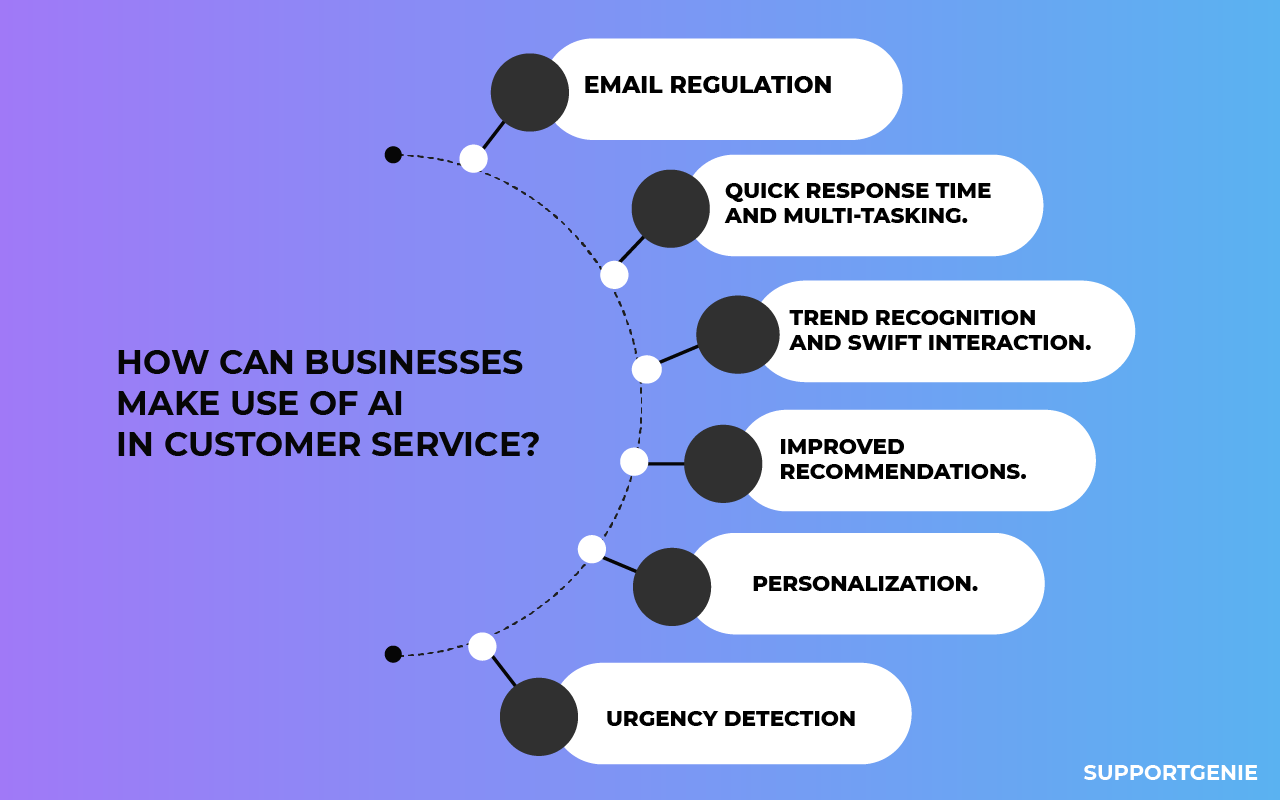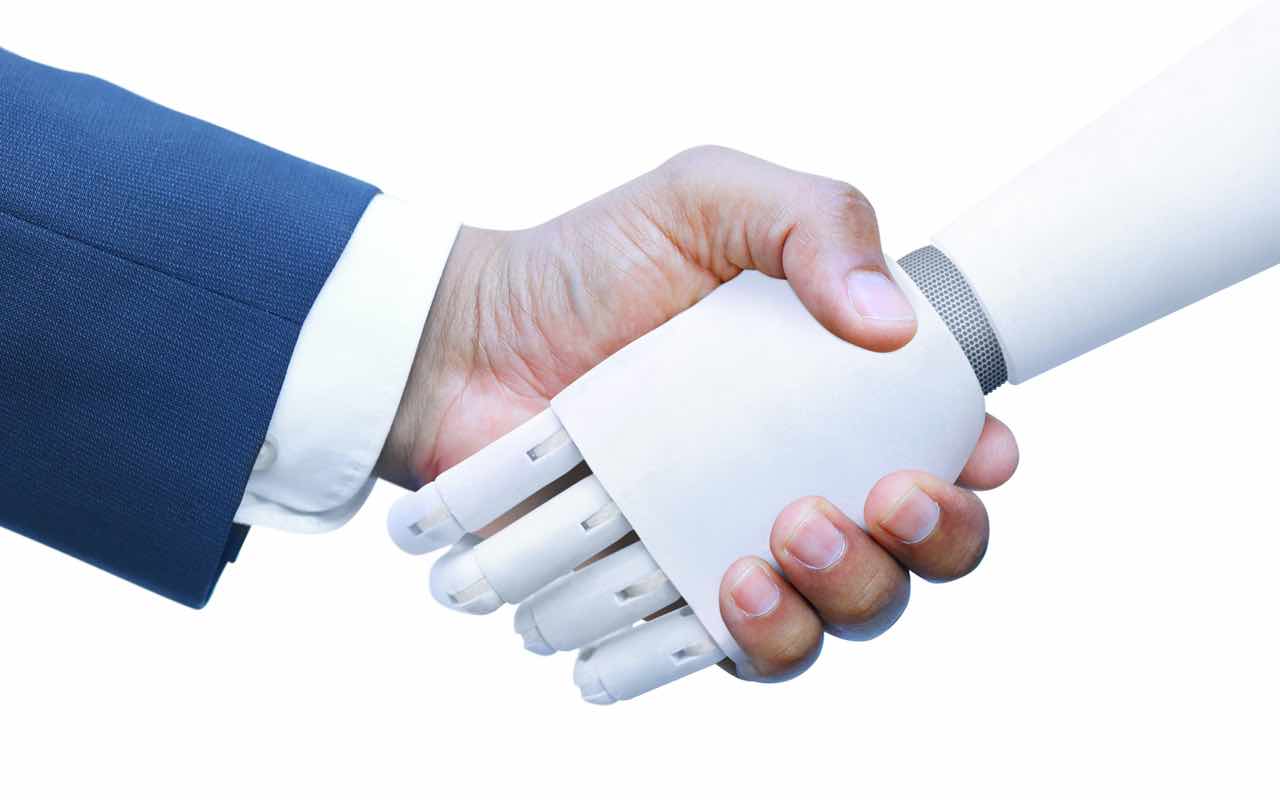AI is the Present and Future of Improved Customer Service
AI is the Present and Future of Improved Customer Service
By: Harmeet Singh
You know the world is changing when a hologram pop star, named Hatsune Miku—driven by an AI autotuning (vocoder), attracts thousands to concerts around the world and actually becomes a singing sensation. Now that's something we never expected, however, a lot of unexpected has taken shape since the conception of Artificial Intelligence. Expected to cross the $200 billion mark in the next five years, AI has already laid the foundation for utmost integration with the human world.
Favorably, the customer services domain is no alien to such growth. The relationship between customer service and AI has long been associated with improved customer satisfaction and a boost in productivity. For this precise reason, this article endeavors to explore their fruitful connection and the perceived opportunities for futuristic innovations.
Why is AI considered apt for customer service?
Customer service, at times, can be a very challenging field—one that can socially drain the human workforce. In adverse situations, the customer support professional can exhibit emotions that can ruin the interaction.
Loyalty is the reason why many organizations place emphasis on providing a world-class customer experience. Customers always have the upper hand when it comes to service and are more than likely to switch allegiance from failure to meet their expectations. With that in mind, companies are always looking for a solution that can provide instant gratification. The next progression for support is to provide a self-service solution that can be rendered in real-time using the latest technology.
But this is not all for justifying the use of AI in customer service. The customer care segment is more or less monotonous and redundant. In addition to that, it requires individuals to respond quickly while unproductively multi-task.
All the preceding factors contribute to the notion of AI, where Machine Learning (ML) and Natural Language Processing (NLP) administer the proceedings. AI is reflective of an ideal technology that can listen, respond, and deliver in reasonably quick succession.

How can businesses make use of AI in customer service?
Businesses highly prioritize customer satisfaction, which presents an opportunity for AI to dominate the domain. By adding AI-powered chatbots and virtual assistants to the ranks, businesses can work in favor of their ever-desired objective—brand reputation.
- Quick Response Time and Multi-tasking: One of the most conspicuous features of AI is its ability to multi-task and direct the customers to self-service options. By leveraging and employing different modules of Machine Learning technology, AI can give fast answers to simple queries.
- Trend recognition and swift interaction: AI reduces the research time, for it can store the answers and subsequently leverage them to derive trends that can assist in answering the query.
- Improved recommendations: Predictive analytics is one of those facets of AI, which provides a customer-centric recommendation instantly. This is where AI uses Big data for gathering insights into consumer behavior.
- Personalization: Chatbots have a sound cognitive ability. In other words, they can reason, solve problems, plan, and comprehend complex ideas. With recommendation systems continually providing them with input, these chatbots can provide a human-like experience. It is noteworthy that this experience will differ from person to person based on his or her interests and requirements.
- Urgency detection: That's right; AI is capable of prioritizing the issues and responding to them in quick succession. This is where AI acts as a prominent tool for customer agents.
- Email regulation: AI further strengthens the distribution system of emails by tagging them according to the intensity and urgency of the issue. By doing this, it constrains the customer agent solely to resolving the issue and reduces his or her workload.
It is noteworthy that AI presents a win-win scenario for Human-Technology collaboration as well as entirely Technology Dedicated Customer Service.

What is the future of AI in customer service?
Safe to say—it is bright. AI does arrive with the danger of a mass layoff; however, little can overshadow its groundbreaking capability. Besides, when the brands are predominantly concentrating on enhanced customer support, AI remains on the top of the list.
Scalability, one-time investment, reliability, consistency, accuracy, and real-time support contribute to the inevitable industrial revolution that AI seeks to bring forth. With the rapid pace of industrial progression, it appears that this revolution will arrive earlier than what is expected.
So, how will customer service function when AI completely takes over?
A surge of empathy thanks to Neural Networks
Neural Networks are the most effective in emulating the human brain. They can adapt to the surroundings based on the data they have been rendered with. The fact that they can achieve successful imitation in a very short time places them at the helm for customer service.
Because these algorithms run on fed attributes, their characteristics reflect upon the choice of organizations. In concrete terms, they demonstrate what you want them to do. For this precise reason, we can expect a surge in empathy, compassion, and intellectuality.
More meaningful conversations courtesy of NLP
Natural Language Processing or NLP has already exhibited it conspicuousness with search engines. The same is expected with NLP powered chatbots, which will comprehend the language seamlessly and provide meaningful answers.
Now, this doesn't come as a surprise because chatbots are performing exceptionally well even these days. However, as the data will increase, NLP will become more effective—comprehensive analysis, sound understanding, competent decision-making. In other words, NLP will help drive the information retrieved from social systems by utilizing it for fruitful conversations.
Generation of exponential ROI
The inclusion of chatbots will point towards decreased payroll costs and increased competence. First off, chatbots will come expensive; however, the maintenance wouldn't cost much compared to the remuneration offered to customer service professionals. Second, reduce costs will pave the way for paying high amounts to specialists at eminent seats. With regard to a technicality, chatbots will be swifter, rational, creative, innovative, and empathetic—all of which contribute to increased customer satisfaction and exponential ROI.
Three things we have learned from customer service AI
- Your business will gear up for a venture where relationships are built for prolonged periods. These relationships will develop in accordance with the values you infuse in your technology.
- Your business will incline with the dynamic technological domain. In the ever-increasing competition, you'll be able to serve as an imminent contributor to constructive but disruptive change.
- Your business will witness a growth that you have always envisioned. The ROI will grow exponentially, and you'll be able to satisfy customers at an unprecedented rate.
All-in-all, your venture will align with your mission and vision—all thanks to the successful integration of customer service and AI.


